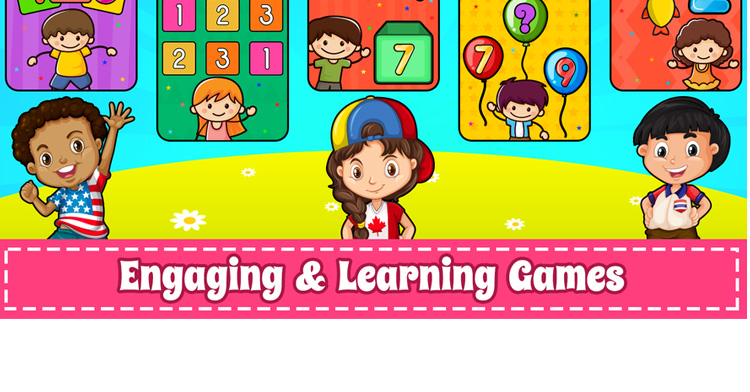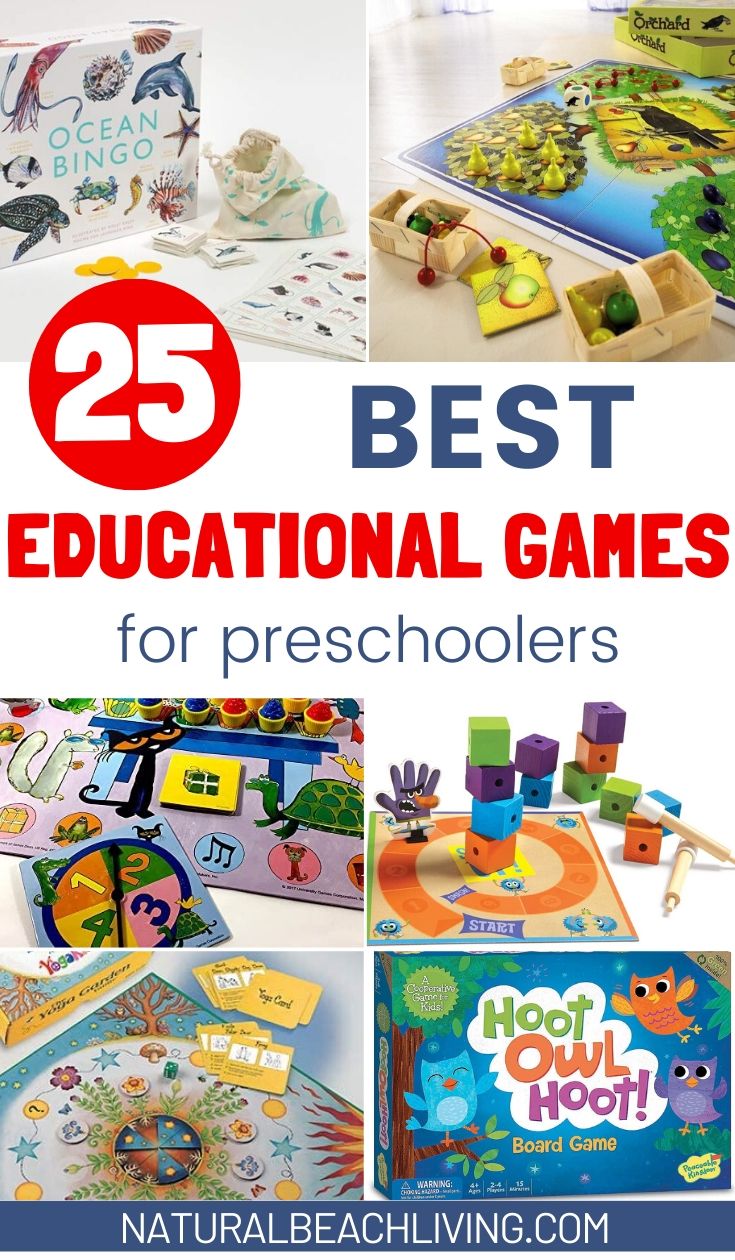
Introduction
Overview of Educational Games for Kids
Educational games for kids have become a powerful tool in both school and home settings, seamlessly blending fun with learning. These games range from interactive apps on tablets to board games that encourage teamwork and critical thinking. For instance, imagine a child mastering math concepts while building colorful castles or racing against time in a word puzzle.
Benefits of Using Educational Games
The benefits of incorporating educational games into children’s daily routines are numerous:
- Enhanced Learning: Kids grasp complex concepts more easily through playful interactions.
- Improved Retention: Learning through play helps solidify knowledge in a child’s memory.
- Skill Development: Games often target essential skills such as critical thinking, communication, and collaboration.
By weaving learning into engaging gameplay, parents and educators can foster a love for learning while equipping children with vital life skills.

The Importance of Educational Games
Cognitive Development
Educational games play a crucial role in enhancing cognitive development during early childhood. As kids tackle various challenges in games, they engage critical thinking processes. For example, during a strategy game, children must analyze situations and make decisions that influence outcomes, thus sharpening their mental faculties.
Problem-Solving Skills Improvement
These games are also excellent for improving problem-solving skills. When children encounter obstacles within a game, they learn to devise strategies and think creatively. They often experience “aha!” moments, finding solutions that boost their confidence.
Engagement and Motivation Boost
Moreover, educational games are incredibly engaging, holding the child’s attention longer than traditional methods. The colorful graphics and interactive nature of these games motivate learners to keep pushing themselves. Instead of dreading math drills, children can be excited about solving puzzles or racing against their peers. By doing so, they pair learning with enjoyment, fostering a positive attitude towards education overall.

Criteria for Selecting Educational Games
Age-Appropriateness
When choosing educational games, age-appropriateness is crucial. Games should align with a child’s developmental stage, ensuring that they’re neither too challenging nor too simplistic. For younger children, simple counting games can ignite a passion for numbers, while older kids might thrive with games that require advanced logic and strategy.
Educational Value
Next, consider the educational value of a game. It should promote learning specific concepts, whether it’s math, language, or social skills. For example, games that incorporate storytelling can enhance vocabulary and comprehension, making learning enjoyable and effective.
Entertainment Factor
Lastly, the entertainment factor cannot be overlooked. A game must captivate the child’s imagination to keep them engaged. A personal favorite of many parents is a game that combines exploration with quizzes, keeping kids enthusiastic about both play and learning. Balancing these criteria ensures that the game serves its purpose effectively while also being fun!

Top 10 Educational Games for Kids
Game 1: ABCmouse
ABCmouse is an interactive learning platform designed for children ages 2-8. It offers a comprehensive curriculum that includes reading, math, science, and art.
Game 2: Prodigy Math
Prodigy Math turns math problems into an adventurous quest. Kids solve math questions to progress through a magical world, making learning engaging and fun.
Game 3: Osmo Genius Starter Kit
With hands-on learning combining physical and digital play, the Osmo Genius Starter Kit offers games that let kids use tangible pieces to solve puzzles, stimulating creativity and problem-solving skills.
Game 4: Rush: A Disney Pixar Adventure
This cooperative multiplayer game encourages teamwork as kids solve puzzles alongside their favorite characters from Disney and Pixar films while developing critical thinking abilities.
Game 5: Endless Alphabet
Endless Alphabet introduces new vocabulary with adorable animations and funny characters, making language learning enjoyable and effective for preschoolers.
Game 6: Lego Education SPIKE Prime
This game combines hands-on building with coding, allowing older kids to create their robots using LEGO, thus enhancing engineering skills while keeping creativity alive.
Game 7: Minecraft: Education Edition
Minecraft: Education Edition offers a unique platform where students can explore concepts of science, math, and history in a virtual world, fostering collaboration and creativity.
Game 8: ScratchJr
ScratchJr is a fantastic starting point for young programmers. Kids can create their interactive stories and games, allowing them to learn coding basics in a fun, intuitive way.
Game 9: Toca Boca Series
The Toca Boca Series offers a range of fun games that encourage children to explore real-life scenarios, fostering creativity and social skills in various environments.
Game 10: Kahoot!
Kahoot! transforms quizzes into engaging competitions. Teachers and parents can create custom quizzes that make reviewing lessons exciting, ensuring that learning is both effective and enjoyable.
These top 10 educational games for kids provide fantastic opportunities to combine fun and learning. Each game uniquely contributes to a child’s development while igniting their curiosity and imagination!

How to Incorporate Educational Games into Learning
Integrating Games into Curriculum
Integrating educational games into the curriculum can enhance the learning experience significantly. Teachers can design lessons around games that align with the learning objectives. For instance, using math-based games to teach addition and subtraction can make numbers less intimidating and more relatable.
Balancing Screen Time with Other Activities
It’s essential to balance screen time with other activities. Allocate specific times for game-playing while encouraging outdoor play or hands-on projects. For instance, after completing a learning game, kids can engage in a craft related to the topic, solidifying their grasp of the material.
Involving Parents and Teachers
Collaboration between parents and teachers is vital in this process. Both can work together to identify suitable games, share progress, and celebrate achievements. Consider organizing family game nights to involve parents in the educational journey, transforming learning into a community activity. This not only strengthens family bonds but also reinforces the lesson learned in a collaborative environment.

Case Studies: Success Stories with Educational Games
Child A: Story
Meet Emma, a 7-year-old who struggled with reading. After her parents introduced her to the app Starfall, Emma’s enthusiasm for phonics soared. The interactive stories and games transformed her reluctance into excitement, and within months, she could read independently.
Child B: Story
Next is Liam, a 9-year-old who found math daunting. His teacher utilized Prodigy Math in the classroom, and suddenly, math wasn’t just numbers; it was an adventure! Liam’s confidence blossomed as he raced through math challenges, eventually achieving a level of proficiency that surprised everyone, including himself.
Child C: Story
Lastly, we have Mia, an outgoing girl who excelled in social skills but struggled with critical thinking. With the help of Minecraft: Education Edition, she could combine her love for building with problem-solving. As she collaboratively constructed intricate worlds with her classmates, her analytical abilities flourished, showcasing the profound impact educational games can have on diverse learning needs.
These success stories highlight how educational games can truly transform children’s learning experiences, helping them overcome challenges while having fun!

Challenges and Solutions
Screen Time Management
One of the primary challenges parents face with educational games is managing screen time. It’s essential to establish clear boundaries to ensure kids enjoy the benefits of learning without overindulgence. Families might adopt strategies such as setting timers or creating a schedule that includes game time alongside outdoor play or reading.
Addressing Individual Learning Needs
Every child learns differently; thus, addressing individual learning needs can be tricky. It’s valuable to continuously assess which games resonate with each child’s unique learning style. For example, visual learners may thrive with interactive graphics, while auditory learners might benefit from games with rich storytelling elements.
Keeping Kids Engaged
Keeping kids engaged can also pose a challenge. To maintain their enthusiasm, rotate games regularly or introduce new ones that build on previously learned concepts. Parents can also collaborate with teachers to update the selection based on classroom lessons, ensuring that children stay excited and motivated about their learning journey. By tackling these challenges, families can create a rewarding educational game experience!

Future Trends in Educational Gaming
Augmented Reality and Virtual Reality
Looking ahead, augmented reality (AR) and virtual reality (VR) are set to revolutionize educational gaming. These technologies allow kids to immerse themselves in expansive learning environments, where they can explore ancient civilizations or even the solar system. Imagine a child experiencing a virtual field trip to the Amazon rainforest, deepening their understanding of ecology in an unforgettable way!
Personalized Learning Experiences
Another notable trend is the rise of personalized learning experiences. As technology advances, educational games will increasingly tailor challenges to suit each child’s learning pace and style. For instance, a game might dynamically adjust its difficulty based on a player’s performance, ensuring that all kids remain engaged and adequately stimulated.
Gamification in Education
Lastly, gamification in education will continue to gain momentum. Schools may integrate game mechanics into traditional lessons, such as point systems or rewards for completing tasks. This approach fosters a competitive spirit while making learning more enjoyable. Combining these future trends promises to create an engaging and effective educational landscape that nurtures young minds!

Resources and Further Reading
Recommended Websites
For those curious about diving deeper into educational games, several websites offer excellent resources. Sites like Common Sense Media provide reviews of educational apps and games, while PBS Kids has a wealth of age-appropriate games that promote learning in fun ways.
Books on Educational Gaming
Books such as “The Gamification of Learning and Instruction” by Karl Kapp explore how gaming principles can enhance educational practices. Additionally, “Playful Design” by Andrew D. D. McGarry emphasizes creating engaging experiences through educational gaming.
Online Communities for Parents and Educators
Joining online communities can be immensely helpful as well. Websites like Edutopia and forums on Reddit allow parents and educators to share experiences, recommendations, and success stories. These platforms create a supportive environment for exchanging ideas about effective educational gaming strategies, fostering a collaborative learning experience for both kids and adults alike.

Conclusion
Recap of Top Educational Games
In wrapping up, it’s clear that educational games like ABCmouse, Prodigy Math, and Minecraft: Education Edition play an impactful role in children’s learning journeys. These games not only engage kids but also help develop vital skills across subjects. Each game has unique features that cater to various learning styles—whether through story-driven adventures, problem-solving challenges, or hands-on creative building.
Encouragement for Learning through Play
As we’ve seen, learning through play fosters a sense of curiosity and excitement in children. Parents and educators should embrace this approach, utilizing educational games to enhance traditional learning experiences. Remember, every game can be a gateway to new knowledge, and through the joy of play, children can cultivate a lifelong love for learning. So, let’s encourage them to explore, engage, and enjoy their educational adventures!

